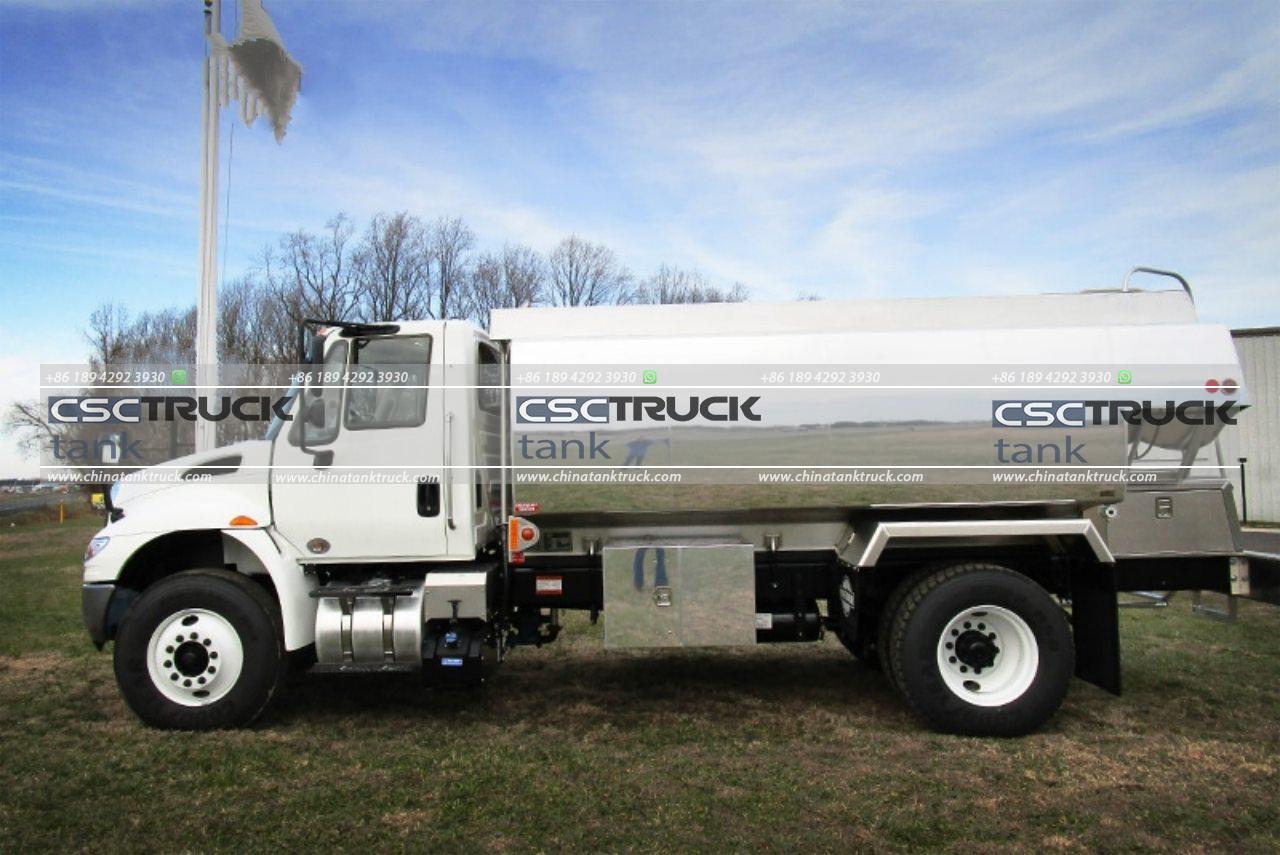Oil tank trucks are a vital part of the global petroleum industry. They are used to transport crude oil, refined products, and other petroleum-based products from refineries to distribution centers, storage facilities, and end-users.
Oil tank trucks come in a variety of sizes and configurations, depending on the specific application. Small tank trucks may have a capacity of just a few hundred gallons, while large tank trucks can hold thousands of gallons. The tanks on oil tank trucks are typically made of steel or aluminum, and they are often insulated to prevent heat loss.
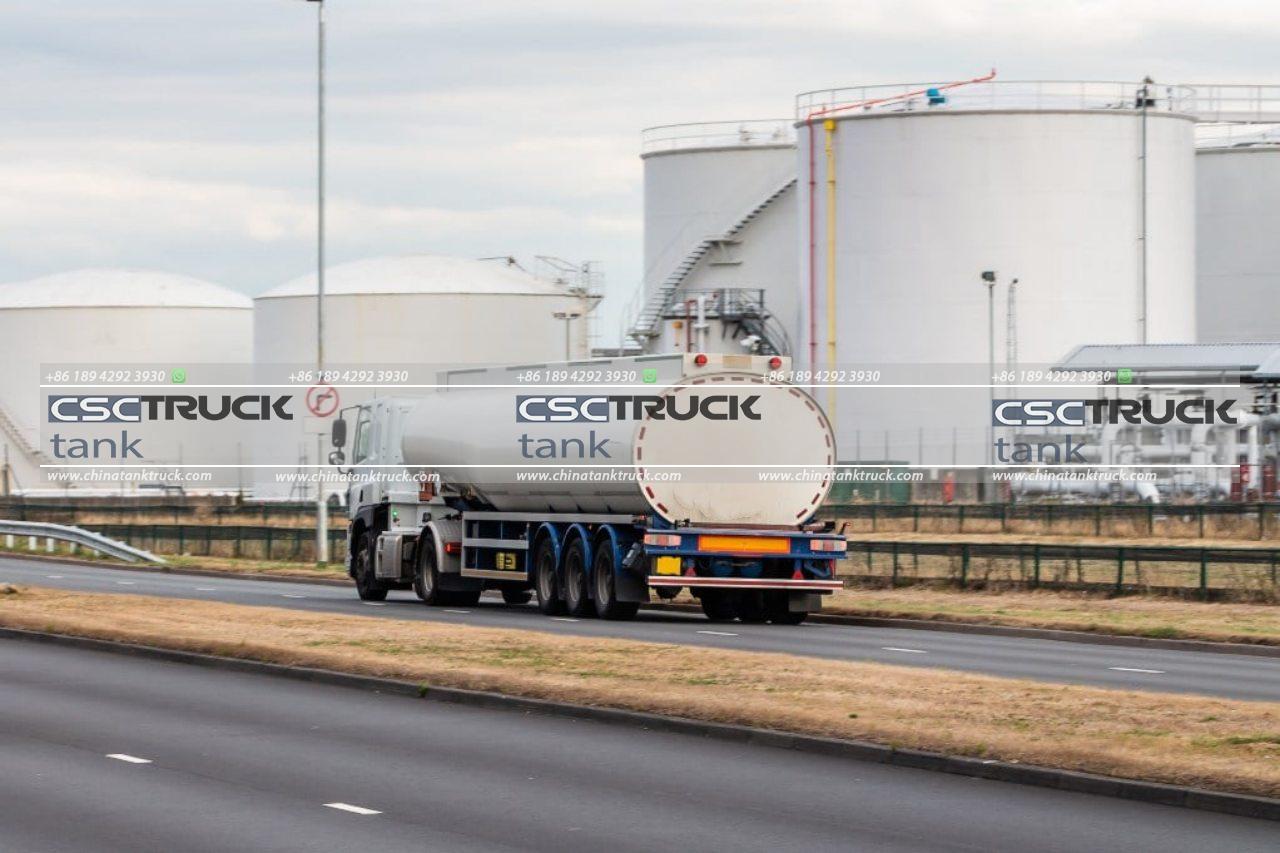
Oil tank trucks are equipped with a variety of features to ensure the safe and efficient transportation of petroleum products. These features include:
- A loading and unloading system that allows the truck to be quickly and easily filled or emptied
- A pumping system that can be used to transfer product from the truck to other vehicles or storage tanks
- A heating system that can be used to keep the product warm in cold weather
- A fire suppression system that can be used to extinguish a fire in the tank
Oil tank trucks are used in a variety of applications, including:
- The transportation of crude oil from oilfields to refineries
- The transportation of refined products from refineries to distribution centers
- The transportation of petroleum-based products to end-users, such as gas stations and industrial facilities
- The transportation of hazardous materials, such as flammable liquids and gases
Oil tank trucks are a critical part of the global petroleum industry. They play a vital role in the transportation of petroleum products, and they help to ensure that these products are available to consumers and businesses around the world.

Functions of Oil Tank Trucks
Oil tank trucks have a variety of functions, including:
- Storing petroleum products
- Transporting petroleum products
- Dispensing petroleum products
- Providing emergency services
Oil tank trucks are used to store petroleum products in a variety of settings, including refineries, distribution centers, and gas stations. They are also used to transport petroleum products between these locations. In the event of a spill, oil tank trucks can be used to dispense petroleum products to help clean up the spill.
Features of Oil Tank Trucks
Oil tank trucks have several features that make them well-suited for their intended purposes. These features include:
- Large capacity: Oil tank trucks can hold large quantities of petroleum products, which makes them ideal for transporting these products over long distances.
- Durability: Oil tank trucks are built to withstand the rigors of transporting petroleum products. They are made of strong materials that can withstand the weight of the product, as well as the harsh conditions that they may encounter during transportation.
- Safety features: Oil tank trucks are equipped with several safety features, such as fire suppression systems and pressure relief valves. These features help to prevent accidents and ensure the safety of the people who operate and use these trucks.
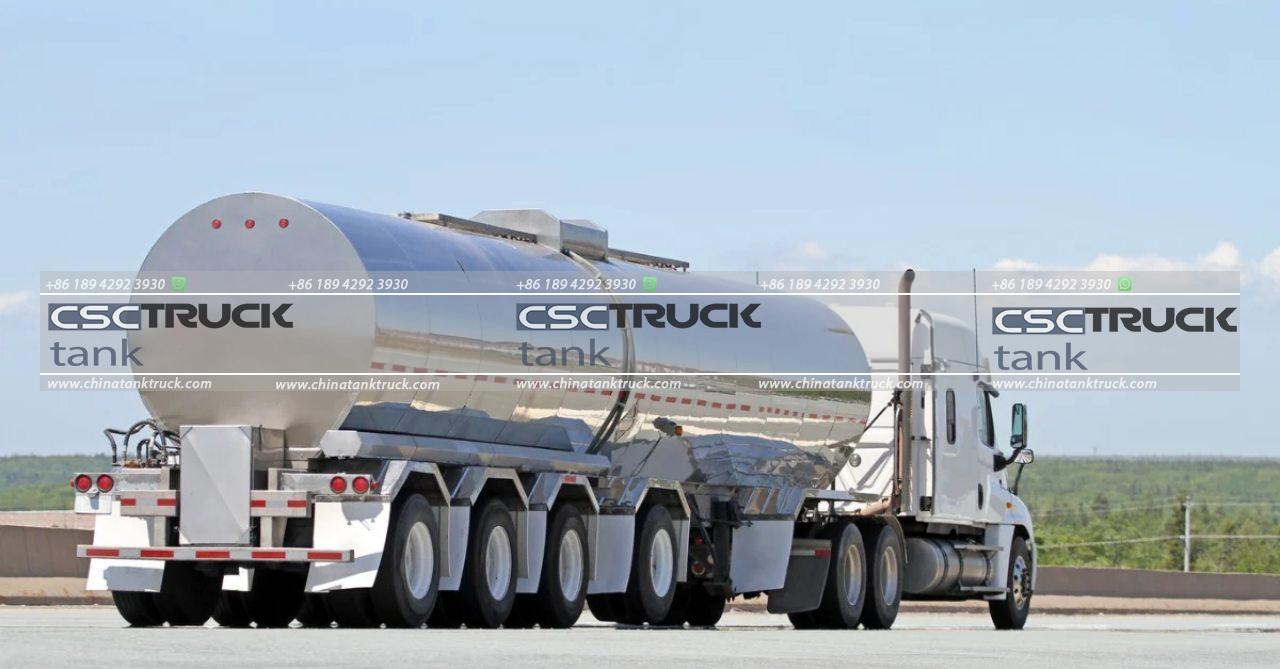
Applications of Oil Tank Trucks
Oil tank trucks are used in a variety of applications, including:
- The transportation of crude oil: Oil tank trucks are used to transport crude oil from oilfields to refineries.
- The transportation of refined products: Oil tank trucks are used to transport refined products, such as gasoline, diesel, and jet fuel, from refineries to distribution centers.
- The transportation of petroleum-based products: Oil tank trucks are also used to transport other petroleum-based products, such as asphalt, lubricants, and solvents.
- Emergency services: Oil tank trucks can be used to provide emergency services in the event of a spill or other incident involving petroleum products.
Safety Considerations
The transportation of petroleum products by oil tank trucks is a complex and potentially hazardous operation. Several safety considerations must be taken into account when operating these trucks, including:
- The proper loading and unloading of the truck
- The proper operation of the truck’s safety features
- The prevention of spills and leaks
- The safe operation of the truck in all weather conditions
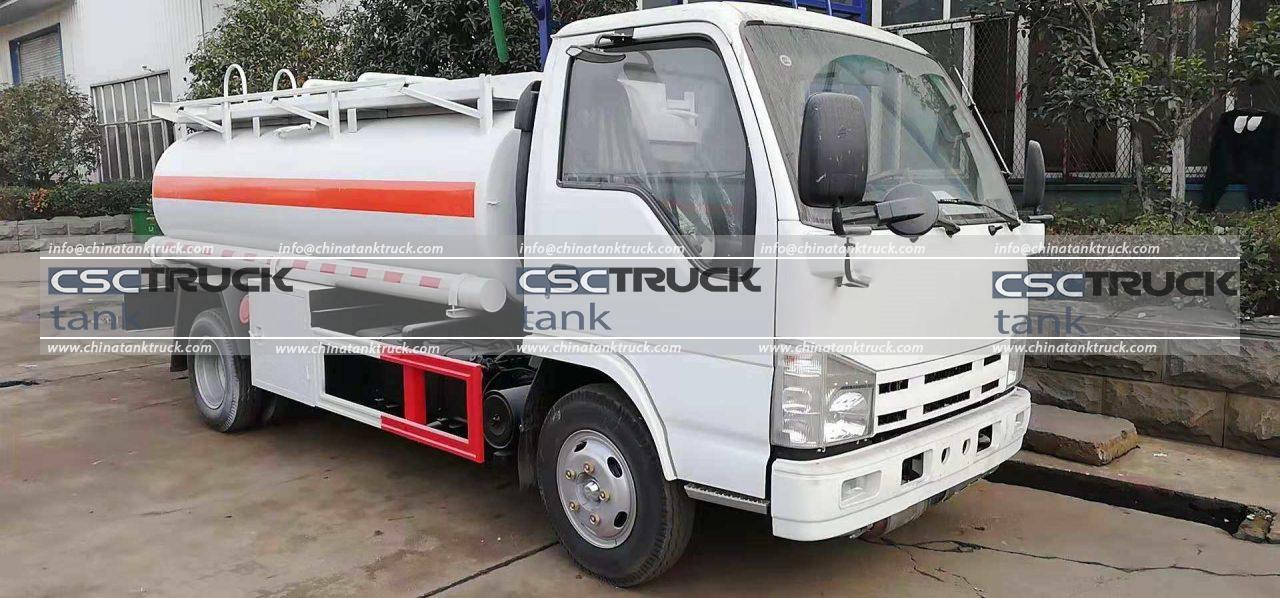
Regulations for Oil Tank Trucks
Oil tank trucks are subject to several regulations, both at the federal and state levels. These regulations are designed to ensure the safe transportation of petroleum products.
Some of the key federal regulations that govern oil tank trucks include:
- The Hazardous Materials Transportation Act (HMTA): The HMTA regulates the transportation of hazardous materials, including petroleum products.
- The Pipeline and Hazardous Materials Safety Administration (PHMSA): PHMSA is the federal agency that enforces the HMTA.
- The Occupational Safety and Health Administration (OSHA): OSHA sets workplace safety standards for oil tank truck operators.
In addition to federal regulations, oil tank trucks are also subject to state regulations. These regulations vary from state to state, but they typically address the same basic safety concerns.
The Future of Oil Tank Trucks
The future of oil tank trucks is uncertain. The rise of electric vehicles and other alternative fuels could lead to a decline in the demand for oil tank trucks. However, it is also possible that oil tank trucks will continue to play an important role in the transportation of petroleum products for many years to come.
Here are some of the factors that could shape the future of oil tank trucks:
- The demand for petroleum products: The demand for petroleum products will likely decline in the long term, as electric vehicles and other alternative fuels become more popular. However, the demand for petroleum products is still expected to be strong in the near term.
- The development of new technologies: The development of new technologies, such as self-driving trucks, could make oil tank trucks more efficient and safer.
- The regulations governing oil tank trucks: The regulations governing oil tank trucks could change in the future, making it more or less difficult to operate these trucks.
Overall, the future of oil tank trucks is uncertain. However, these trucks are likely to play an important role in the transportation of petroleum products for many years to come.
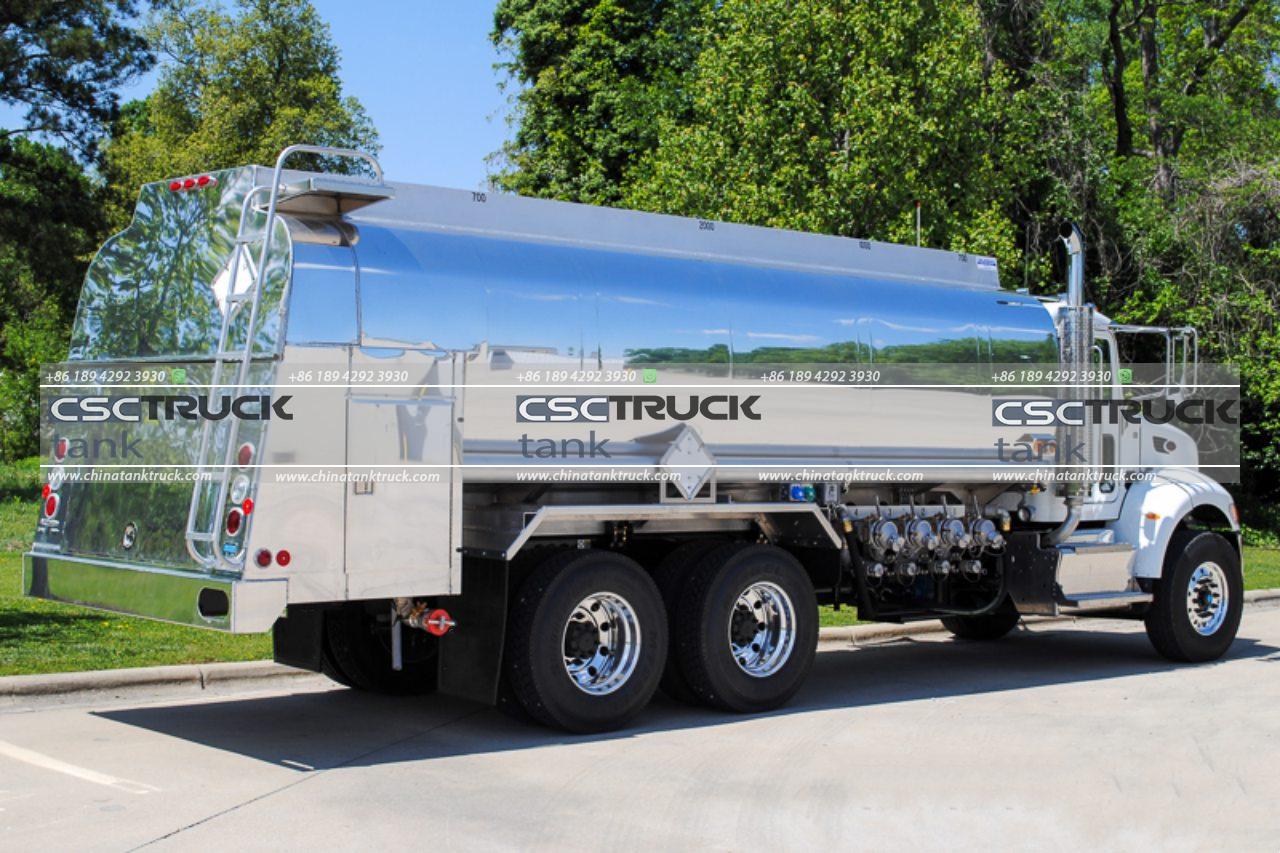
Conclusion
Oil tank trucks are a vital part of the global petroleum industry. They play a critical role in the transportation of petroleum products, and they help to ensure that these products are available to consumers and businesses around the world.
When properly operated, oil tank trucks are a safe and efficient way to transport petroleum products. However, several safety considerations must be taken into account when operating these trucks. By following the proper safety procedures, operators can help to prevent accidents and ensure the safe transportation of petroleum products.
I hope this article has provided you with a comprehensive overview of oil tank trucks. If you have any further questions, please feel free to ask.
